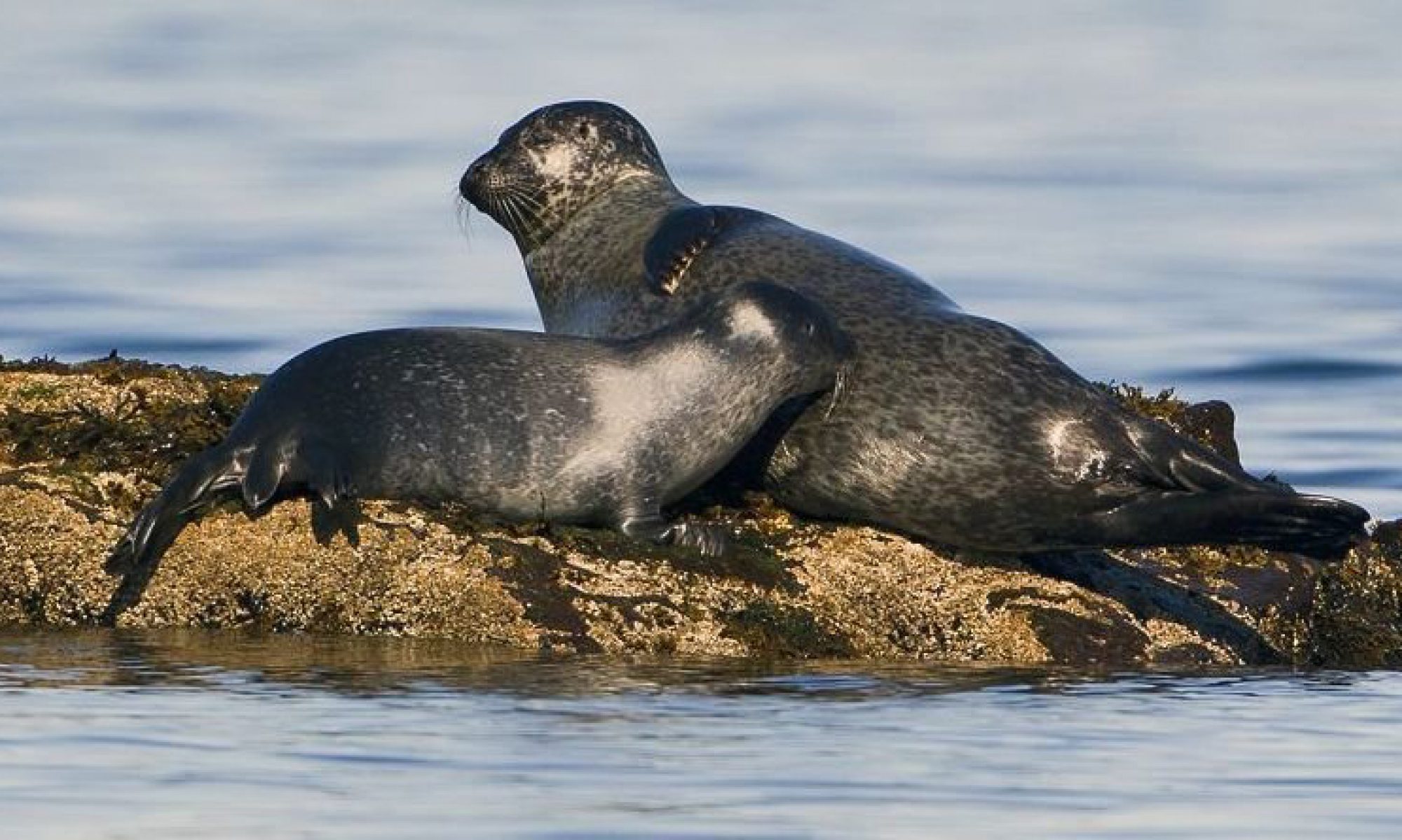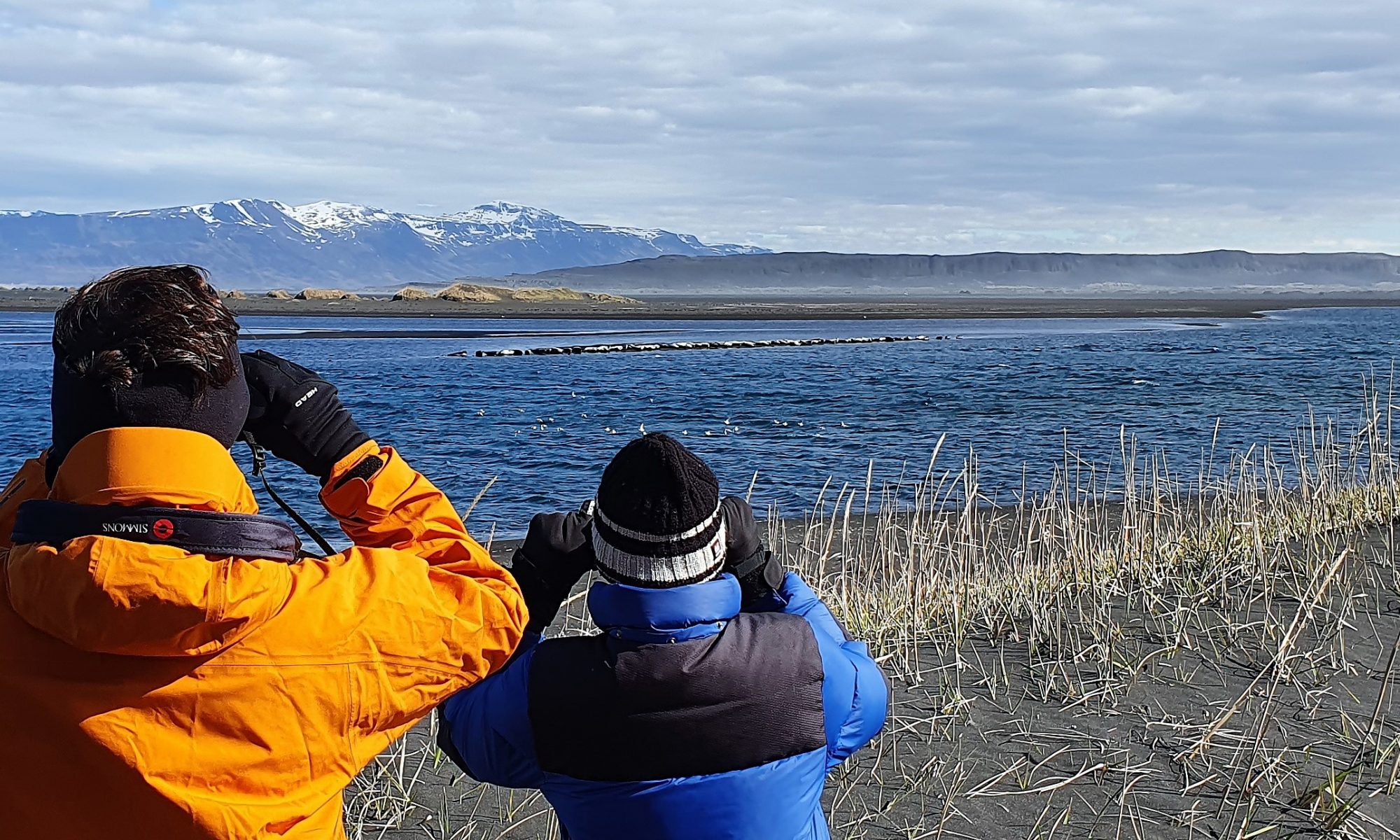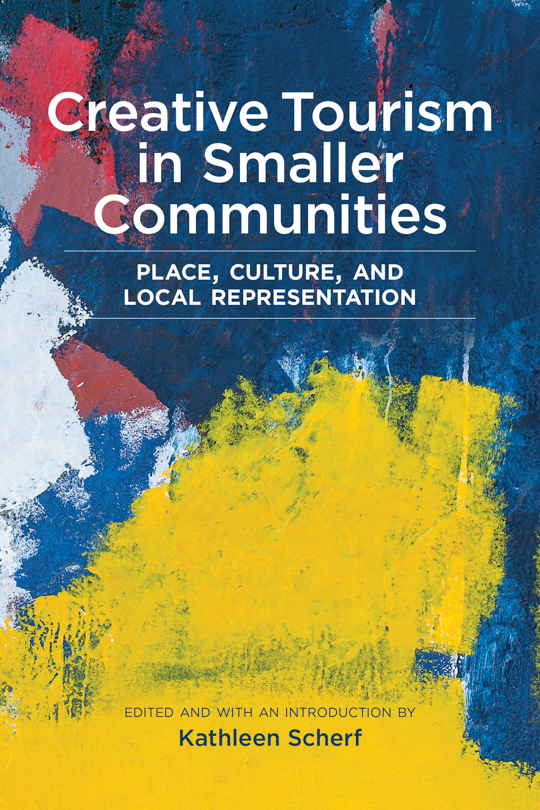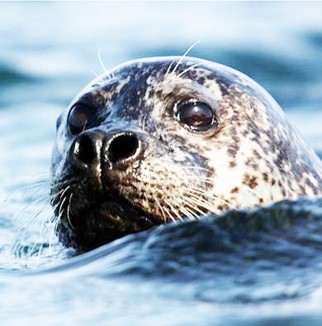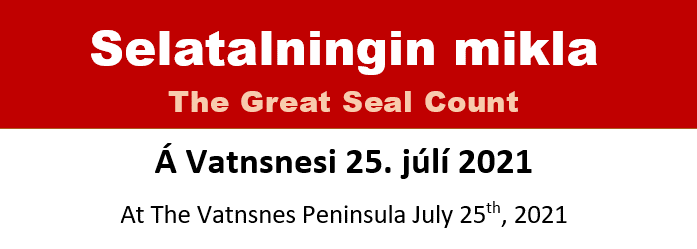
Volunteers Needed at the Icelandic Seal Center
Come join us for our annual Great Seal Count at the Icelandic Seal Center. We need groups of volunteers to count seals along the coastline of the Vatnsnes Peninsula.
Sunday, July 25 at 13.00, the Great Seal Count will be held by the Icelandic Seal Center in Hvammstangi. We encourage everyone to participate, whether you are a local, landowner, or tourist on your trip around the country. Participation gives people the opportunity to see harbor seals in their natural environment.
Program for the counting day:
At 13:00 is the delivery of data, presentation, and training at the Seal Center. Coffee and drinks are available for participants.
At 15.00-19.00, the seal count takes place.
When you are finished, registration of data online or submission of data inbox at the Icelandic Seal Center.
Information for field participants
- It is important to count only seals that are “inside” your area so that each seal is only counted once
- You write down the all seals you can see, whether they are on land or at sea, also write down the time!
- REMEMBER! Not all of you will see seals, but is important to us to know where the seals are and how many. So even if you do not see a seal, that´s very important information to us.
- Please walk carefully and do not make noise since that may scare the seals away before you can count them! For same reason, please do not bring a dog
- Close all gates, respect the animals in the area and do not walk over cultivated land (crops)
——–
This is a wonderful opportunity to volunteer with the Icelandic Seal Center. We are dedicated to developing sustainable wildlife tourism and research and education on the status of the seal populations of Iceland. We rely on volunteers like you to help us with our research. The seal count aims to support further research by gaining knowledge of the number of seals in these areas and continuing to develop sustainable tourism in wildlife viewing.
The counting consists of counting seals in Vatnsnes and Heggstaðanes, but the area will be divided into many different areas (about 2-7km long) and everyone should find a distance that suits them. The large seal count is a fun experience and it is well worth coming and participating in the center’s research work. Before you head out on the peninsula, there will be a short presentation about the Great Seal Count along with information about the research at 13.00.
Do you have a passion for marine wildlife? If yes, volunteer 🙂
